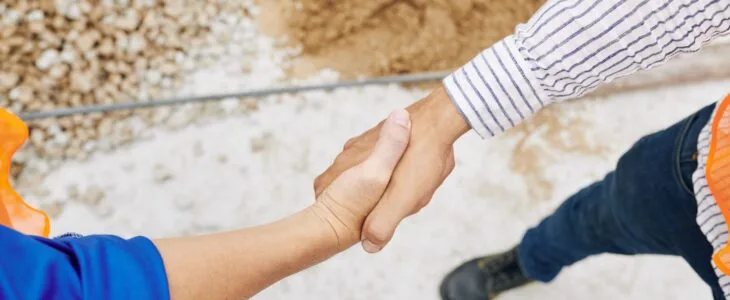If you’re a Florida property owner preparing for a major construction or renovation project, there’s a crucial issue you can’t afford to overlook: What happens if your contractor doesn’t pay subcontractors, laborers, or suppliers?
Unfortunately, under Florida law, you could still be held responsible for amounts owed to these parties—even if you’ve paid your contractor in full. That’s because certain parties have the legal right to place a construction lien (also called a mechanic’s lien) on your property if they aren’t paid for their work or materials.
In this blog, Boatman Ricci will explain how this process works and provide clear, actionable steps you can take to protect yourself.
Why Property Owners Need to Be Aware of Construction Liens
Florida Statute § 713.06 allows material suppliers, subcontractors, sub-subcontractors, and laborers to file a lien against your property—even if you’ve never contracted with them directly.
This situation often arises when a general contractor fails to pay their vendors or subcontractors. To secure their right to file a lien, those parties must serve the property owner with a Notice to Owner (NTO).
What Is a Notice to Owner (NTO)?
An NTO is a legal document that alerts a property owner that someone working on the project—who isn’t in direct contract with the owner—intends to protect their right to file a lien if unpaid.
Timing Matters
To be valid, the NTO must be:
- Served within 45 days of the subcontractor or supplier starting work or delivering materials; and
- Received before the owner makes final payment to the contractor
Strict compliance with Florida’s lien laws is essential as a lien can be held invalid if certain requirements are not met.
How Property Owners Can Protect Themselves
The good news? Florida law gives you tools to protect your property from being liened.
Here are five proactive steps every property owner should take:
Track All Notices to Owner Received
Keep a record of every NTO served on you. This helps you stay informed about which subcontractors and suppliers are working on your property—and who may have a right to file a lien if unpaid.
Request Proof of Payment
You have the right to require your contractor to provide documentation showing that everyone who served an NTO has been paid.
Before issuing progress payments, ask for:
- Paid invoices or receipts
- Partial lien waivers
- Subcontractor affidavits confirming payment
This step ensures that your payments are flowing down to the right people.
Use the Contractor’s Affidavit to Make Direct Payments
Under Fla. Stat. § 713.06(3)(c), if your contractor submits an affidavit identifying unpaid subcontractors or suppliers, you can pay them directly and deduct that amount from your contractor’s payment.
This protects you by satisfying the debts and reducing the risk of a lien.
Require a Final Payment Affidavit
Before you make final payment on a contract, Florida law requires the contractor to provide a Final Payment Affidavit (Fla. Stat. § 713.06(3)(d)). This document must list:
- All lienors who have been paid in full
- Any lienors who have not been paid and the amounts owed
Do not issue the final check until you review this affidavit and resolve any listed remaining balances.
Always Request Lien Waivers
One of the most effective protections is to make your payments conditional on receiving lien waivers from subcontractors, suppliers, and laborers. A lien waiver is an express, written waiver of the subcontractor’s right to place a lien on the property and is your best protection against liens for amounts already paid to your contractor.
There are two main types of lien waivers:
- Partial Lien Waivers: These are used with progress payments, and these waive lien rights for work/materials up to a certain date.
- Final Lien Waivers: Issued after final payment, these permanently waive lien rights for all completed work.
Getting these waivers in writing reduces your exposure to hidden liabilities by ensuring that your payment is applied to amounts owed to subcontractors and others.
Additional Tips for Property Owners
- Use joint checks: In certain circumstances, it may be wise to pay your contractor and the subcontractor/supplier jointly to ensure funds are applied properly.
- Hire reputable contractors: Do your due diligence. Ask for references, verify licenses, and check for past litigation or complaints.
- Work with a construction attorney: Before you sign a major contract, consult an attorney to review the terms—especially provisions related to lien releases and payment schedules.
How Boatman Ricci Can Help
Whether you’re just getting started on a construction project or you’re already dealing with a potential lien, the attorneys at Boatman Ricci are here to help. We advise property owners, contractors, and suppliers on Florida’s lien laws, drafting and responding to NTOs, resolving disputes over unpaid work, and even enforcing or defending against lien claims.
We can help ensure your rights are protected and that you’re not left footing the bill for someone else’s failure to pay. If you have questions about construction liens or contractor disputes, contact Boatman Ricci today.


